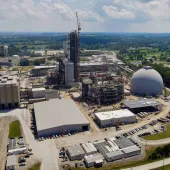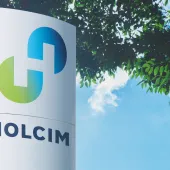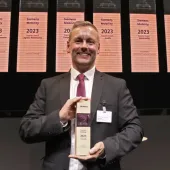Mannok and CATAGEN in decarbonization collaboration
Companies conduct decarbonization study to cut cement industry emissions by at least 18%
CATAGEN, a net-zero innovation company, and Mannok, the Ireland-based cement and construction products manufacturer, have conducted a six-month feasibility study to explore the decarbonization of Mannok’s cement operations using CATAGEN’s future suite of ClimaHtech technologies.
Through the introduction of renewable hydrogen and waste heat recovery, Mannok’s carbon emissions were reduced by 7% at their cement plant in Co. Cavan, Ireland. The study also revealed biohydrogen can further reduce cement production carbon intensity by 18% by displacing fossil fuels. Both renewable hydrogen and biohydrogen technologies offer potential CO2 savings equivalent to taking nearly 50,000 cars off the road.
A combined team of CATAGEN and Mannok engineers has identified several pathways to help decarbonize cement production at Mannok’s cement plant, which produces 1 million tonnes of cement annually and employs more than 800 people.
The potential to generate renewable hydrogen and oxygen from CATAGEN’s HGEN (renewable hydrogen generator) aided by waste heat recovery from the cement process is said to represent a significant decarbonization opportunity across the cement industry. The study has determined that the use of the HGEN technology could reduce annual carbon emissions by 7% in this application.
The same study found that biohydrogen generation from waste biomass can generate larger volumes of hydrogen with less renewable energy required compared with electrolytic hydrogen generation. The use of BIOHGEN technology could reduce the carbon intensity of cement produced at this site by a further 18% by reducing fossil fuel use. CATAGEN’s biohydrogen technology uses a source of waste biomass which is readily available both in the UK and Ireland and does not displace the growing of crops for food.
Implementation of both solutions at Mannok will displace carbon savings equivalent to removing 49,000 cars from roads on the island of Ireland. The solutions identified in this study could be applied to cement production worldwide where sufficient renewable energy and sustainable biowaste are available.
The decarbonization of the cement sector is integral to sustainable and responsible construction of the built environment, and to further CATAGEN’s mission to clean and decarbonize the air. This aligns with Mannok’s 2030 Vision and other ongoing decarbonization activities and integrates the solutions CATAGEN are developing across renewable hydrogen and oxygen generation, e-fuel generation and compression and dispensing technology. Additionally, the continued development of large-scale renewables will also form a key role in the decarbonization of Mannok’s operations.
Dr Andrew Woods, chief executive officer and co-founder of CATAGEN, said: ‘We are delighted that Mannok engaged CATAGEN in this important study, which showcases how we can support the decarbonization of heavy industries, such as cement production. This is one of the most difficult sectors to decarbonize and pioneering companies such as Mannok are looking at next-gen technologies to meet emissions targets and impact climate change.
‘Collaborations like this are the only way to make significant changes for the future and continue to progress CATAGEN’s purpose to clean and decarbonize the air. We look forward to continuing our working relationship with Mannok.’
Kevin Lunney, operations director at Mannok, said: ‘We are very excited to be working with the CATAGEN team, who have demonstrated a deep level of technical ability and competency during the feasibility work. I have no doubt that Mannok will derive significant value from the work already completed, with many new opportunities for collaboration now presenting that we would not have considered before.
‘Achieving Net Zero is now the primary goal for our business and I expect CATAGEN will play a significant role in our achieving that goal, which we expect will have major benefits for the sector overall.’







